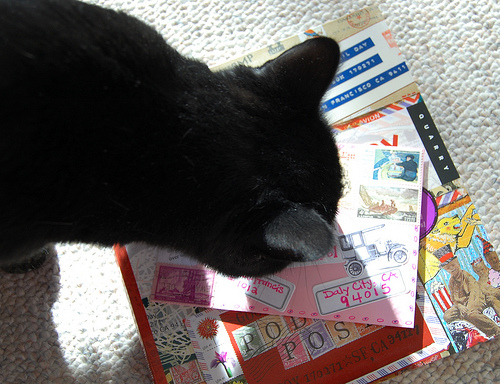Advice I Wish I’d Been Given When I Started … Part 8
This continues our series asking some seasoned, experienced authors what three key bits of advice they would give new writers that they wished they’d known when they started writing. We all wish someone had given us gems of wisdom that would help us avoid wasting precious time and making serious career mistakes. So I hope hearing the advice from these various authors will help you in your writing journey!
Today’s post is from author Jackie Castle:
So. You’ve declared yourself a bona fide storyteller, a scribe of fantastical tales, an author in training. And with that admittance comes a sense of peace, of rightness, and a world of craziness.
Yes, craziness. You read that right.
As a beginning writer embarking on this whimsical venture, you will want to consider some things that may help you along this strange journey you’ve undertaken.
Join a critique group
So, you’ve written a book—perhaps some short stories. Now comes the time when you need to share your brilliance with other writers. You see, there’s safety and camaraderie in groups. Find those who are like-minded. Only writers truly understand writers. And we need each other to help to sharpen our craft.
Critique partners can be found, even if you live out in the middle of nowhere. If you have an Internet connection, you can find critique groups. The key, though, is to find a group of writers who will understand the genre you are writing in. For instance, if you’re a children’s book writer, then search for groups who write for that same age group. Why? Because there are certain rules that go along with these books that those who read and write adult books won’t know.
Join organizations that support the type of writing you are doing. Romance? There’s Romance Writer’s of America, for one. Children? The Society of Children’s Book Writers and Illustrators. Christian fiction? American Christian Writer’s of America. These are only a few organizations. There are so many more.
Check your local bookstore or library to see if there are any writers’ groups meeting in your area. Or, if you know other writers but have no meeting place, consider starting one of your own.
Learn to Listen with an Open Ear and Heart
Read your work to fellow scribes and listen to their observations of your work. Really listen. Then go back and discern what you need to consider and what you should ignore. A good rule of thumb for critique groups is that if two or more agree on the same issue, then you probably need to change it. The rest is debatable. Avoid defending yourself when people are offering constructive criticism. Write down what they say, then deal with it later.
Remember, when you critique and get a critique you only hear a part of the whole. Focus on how to improve that one part. Is it a complete scene? Does that scene have a beginning, middle, and end? Does the dialogue sound realistic? Are there typos, misspellings, grammatical errors?
Don’t try to pick apart just for the sake of picking. Sometimes, a person will write a great piece. Leave notes and smiley faces on parts you liked or laughed at. Writer’s need to know how their prose affects the reader.
Don’t Lose Your Voice
When I first started writing, the critique group I went to was tough. But the members wanted to help each other succeed. Writers mean well, but I let myself become disheartened until I lost confidence in my ability to write. Every week I came back, adding every last bit of advice they gave me. Still, it never seemed good enough. They found more to pick at. The real problem was I’d never finish anything. Eventually, I got to the point where I was ready to give up, fearing I’d never write like they did.
What I didn’t realize at the time was that I’m not supposed to write like them. I have my own unique voice. People would tell me they liked my stories, but I somehow got it in my head that if I didn’t write like them, I wasn’t a good writer. Which was silly because we were all in the same boat, trying to get published. Eventually, I had to remind myself that I knew the rules; I knew how to put the story together. I simply needed to do it. And I eventually did. Once I completed a full manuscript, I wrote another, then another one after that. Some of those early writings will stay in the drawer where they truly belong.
Don’t get discouraged when people do judge your work. Have confidence in yourself and your story to know what needs to be fixed and what needs to be ignored. Trust yourself and your natural talent as a storyteller. You will hear all kinds of advice and tips on how to write. But, thank goodness, we don’t all write alike. How extremely boring books would be if we did.
We each have a unique voice. Learn to trust your voice, while being open to constructive criticism. Fix the grammatical errors. Fix the plot problems. Know that some people write in figurative language and others write in simple language. Figure out what your prose is and let it flow. Trust it. That voice is yours and yours alone. The world needs to hear your special voice. Really.
Most of all, keep in mind that this is a long road. Sometimes a long, lonely road. Finding like-minded friends you can learn from and be encouraged by will help you along your way. But always remember that you have been given a gift. A unique gift. You have stories that only you can tell and in a way only you can tell it. Trust yourself and your ability. Most of all, keep writing.
Feature Photo Credit: Lotus Carroll via Compfight cc
Jackie Castle is a published freelance writer and elementary educator. She’s published two books in her White Road Chronicle series: Illuminated and Luminosity. When she’s not teaching, she is traipsing through the worlds of Alburnium or Fae in search of another story. She looks for the extraordinary in the ordinary in everything she experiences. Check out her website here for more information about her books.













Thank you. This applies to me right now. Some many people trying to give advice, but have never actually written a book or even a short story, so I have been feeling like I am not a good writer. Perhaps it is due to the fact that I have only been writing for two years, and lack some experience, but I will heed your advice. So Thank you.
Glad this helped. Trust in your ability to tell a story. Take time to learn your craft. Even professionals have room to grow and learn and improve. You’ll get there. Don’t give up, Brigitte.
All GREAT advice! This essay summarizes my first few years of freelance writer very well: http://www.midlifecrisisqueen.com/2014/01/06/writer/ Hilarious and all too true~
Jackie, I could have written that last bit myself as it so tells what I’ve had to learn on my own journey. Listen, listen, and listen and then decide which works with your voice and your story.
One thing I also found out was that while all writing is writing, different genres require different touches. My historical fiction requires a different set of rules than a thriller or crime fiction. That lesson came to me eventually after I tried to do everything the crime and thriller writers in my group told me. Lesson learned. Now I listen to my own voice and my forty years of reading great historical fiction.
Thanks for that post!
Welcome Elaine. And this is true. I write fantasy for young people, and have had to remember when listening to critique that there are rule I have to write by that a christian historical romance writer doesn’t understand. And that’s all right. I still get good feedback and they are wonderful at helping me to find mistakes.
Good advice, Jackie.
So true that we’ve been given a gift.
And need to guard and hone the craft.
Our voice and story is not meant to be like
another’s.
Happy Writing
Thanks Patty and thanks for sharing the link.
Listening without taking offense is such a huge thing. Sometimes its good to hear feedback, sit on it for a few days and then decide what you agree with and don’t, or what suggestions you like and don’t like. In the end the writer is in control of the direction of their story. As you said “we each have a unique voice.”
Thank you so much! I have recently finished the first draft of my first novel and am in the midst of editing. I’ve been wanting to join a critique group, but to be honest the thought of it scared me. After all of that work, I was afraid to be told that I had wasted my time. This post made me realize how silly I’ve been and has given me the courage to actively seek out a group in my area. Thanks again!